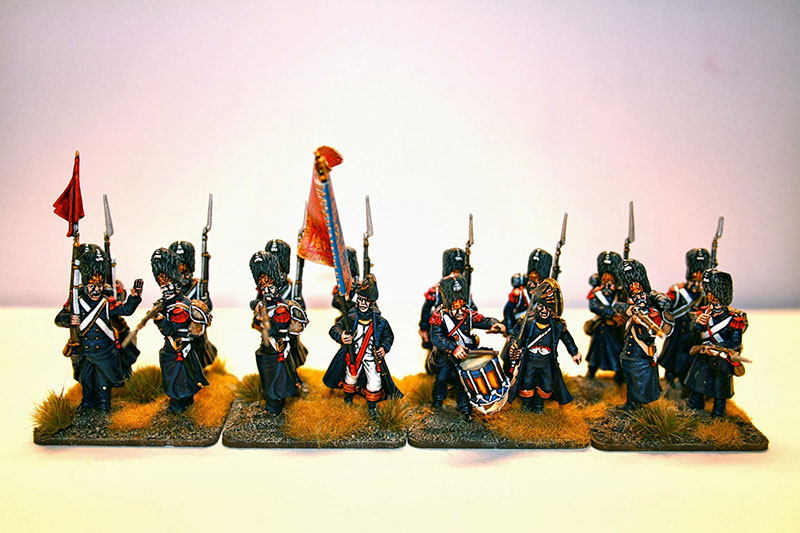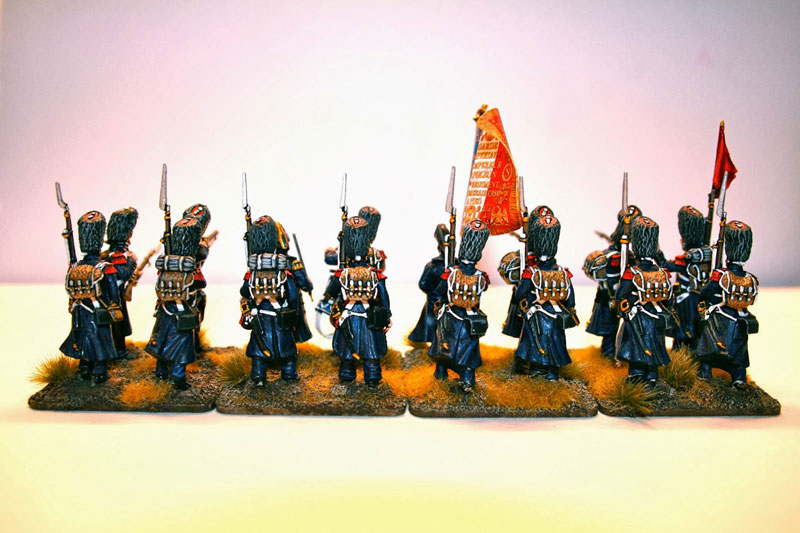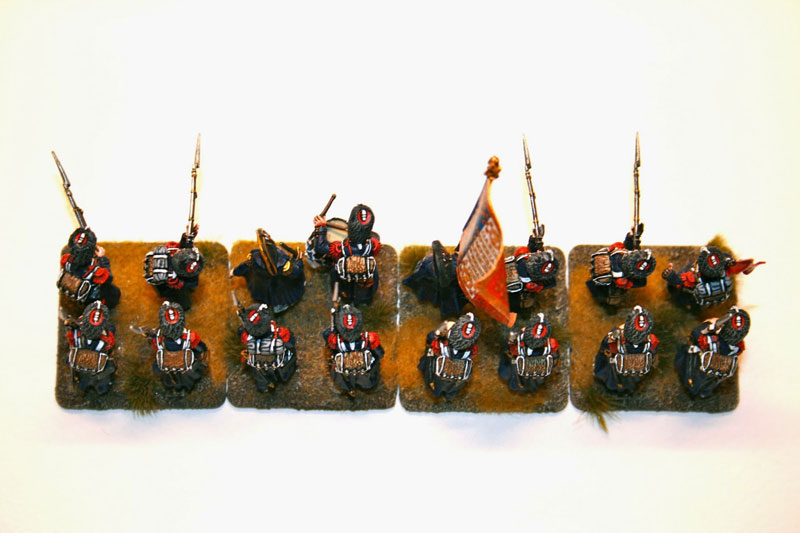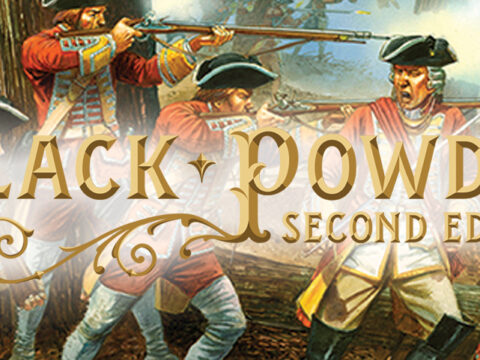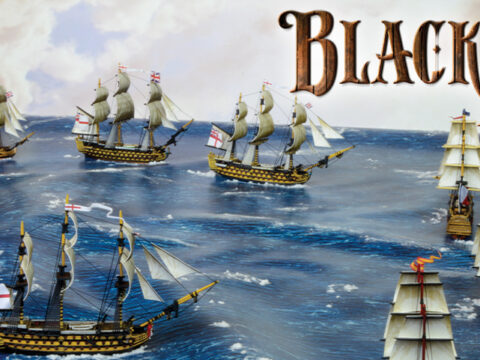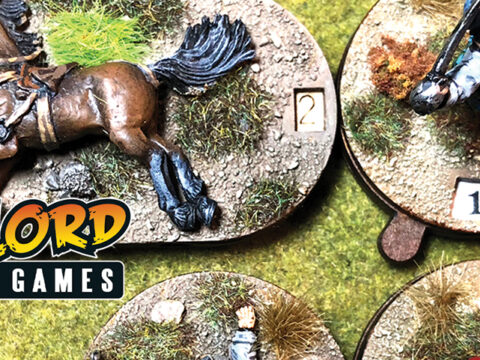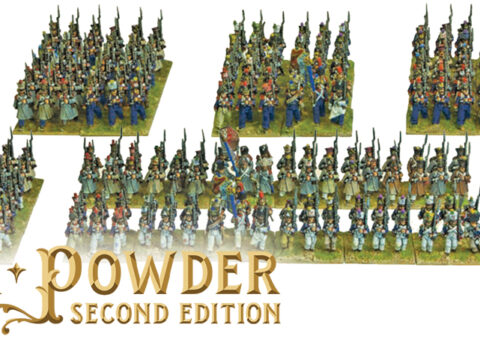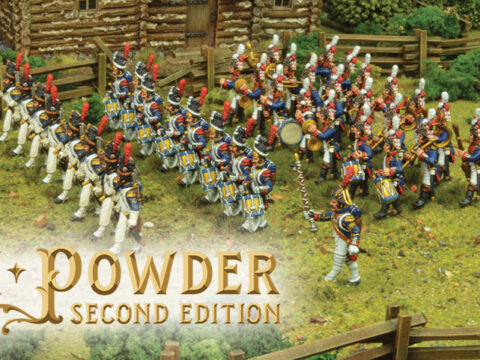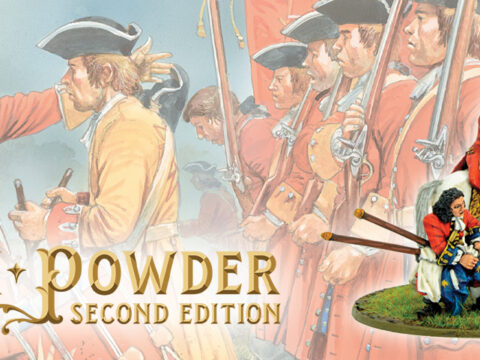Søren Ralph Christensen returns to share the history of Napoleon’s Old Guard and show off his painted regiment:
The Old Guard was first formed in 1804 using veterans from the campaigns of Italy and Egypt. They would see service in all major campaigns of Napoleon, right to the very last hour at Waterloo.

The Old Guard – following their Emperor on his many campaigns
The minimum requirements to be considered for the Guard were:
– you could be no older than 35 yrs
– you’d have at least 10 yrs of active service
– you’d be seasoned and noticed in previous campaigns
Like the grenadiers of Frederick the Great, the Old Guards Grenadiers were also drafted from the tallest segment of the army. Average height was around 1.88 m (ca. 6 ft 2in). Combine that with their impressive fur hats, and you’d have a very tall and imposing unit coming at you.
A sight not often seen – the Old Guard with their backs turned…
The Old Guard was usually held in reserve. It was a crack formation that potentially could be the last needed blow that would win the day, or could act as a human wall covering the retreating army, as seen at Waterloo. Many historians argue that Napoleon often played them too safe, like at Borodino. If he’d been willing to let the Guard take a crack at the enemy, things might have been very different. The orderly Russian withdrawal might have been turned into a rout.
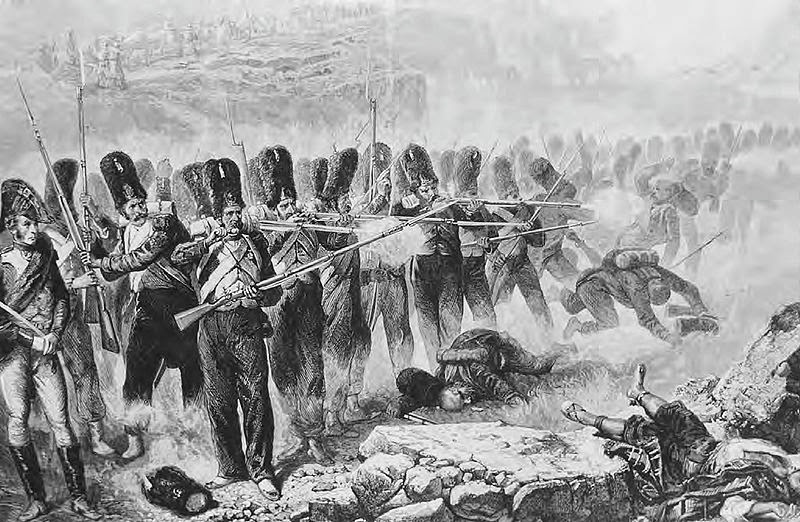
Seasoned warriors
The lovingly applied nickname “Les Grognards” (Grumblers) comes from the special freedom the Guard Grenadiers enjoyed. They were in fact the only unit in the whole Grand Armee allowed to make complaints about the conditions of their field life. And so they did! Often too – and while the Emperor was listening. This exceptional breach of discipline would normally have been perceived as dishonor or disobedience, and be punished harshly. However Les Grognards had earned the undying love and respect of their Emperor, and he always listened to their grumbles.
 The Old Guard in tears – goodbye at Fontainebleau 1814
The Old Guard in tears – goodbye at Fontainebleau 1814
In 1814, after a frenetic and very hard fought Campaign for France, Napoleon abdicated. This would mark the end of the long era of European campaigning. They’d followed him to the sands of Egypt, to the snow of Mother Russia and back to fight for every inch of France.
So it was a clearly moved Emperor who said his goodbyes to a likewise teary eyed Old Guard at Fontainebleau before going into captivity on Elba.
This is how I play them – based on 40x40mm for Black Powder
Naturally the Old Guard would stand by their Emperor once more, as Napoleon made his last effort in the Hundred Days campaign, culminating at the defeat by the Duke of Wellington and his Prussian allies at Waterloo in 1815. At this final battle of his career, Napoleon would have to use his Old Guard one last time – to cover his final retreat.
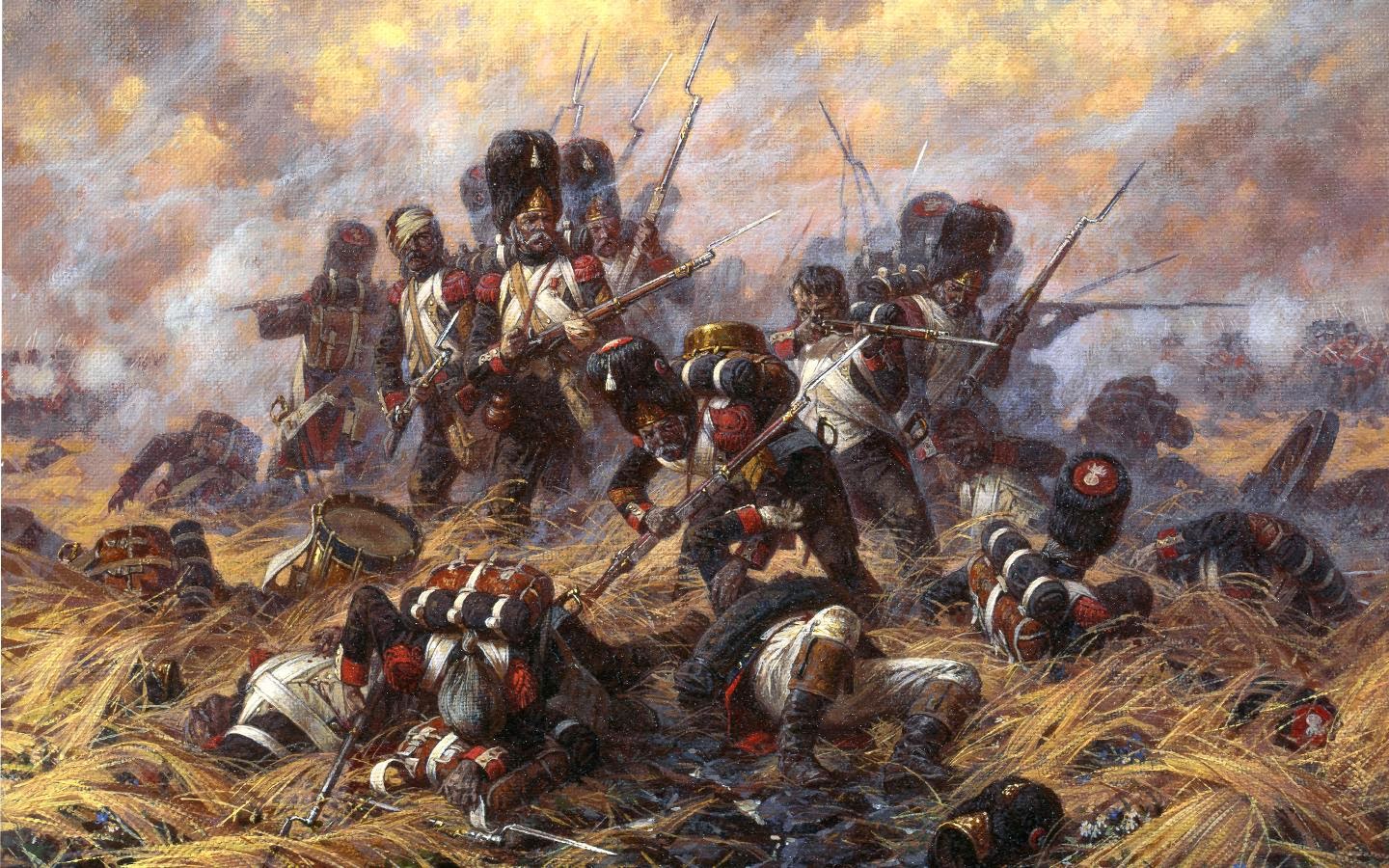 “The Guard dies, it does not surrender!”
“The Guard dies, it does not surrender!”
The Guard suffered horrible losses, but held off the enemy for some time.
Legend has it, that in the midst of the hailstorm of bullets thinning the ranks of the blue-coated men, the enemy – having surrounded them with artillery – offered the Guard to surrender on good terms. The answer came promptly from Cambronne, commanding the few proud men still standing: “La garde meurt et ne se rend pas!” (“The Guard dies, it does not surrender!”).
After the final collapse of Napoleon’s power many guardsmen simply went back to whatever normal life they could find. Many of them watched with great suspicion by the police of the new regime.

Napoleon’s funeral, Paris 1840. A modest little event.
When Napoleons body was finally brought back to France in 1840 (he died in 1821 at Longwood, Saint Helena), a great funeral procession was arranged by Thiers. This would see Napoleon’s remains paraded through central Paris and put to rest in the grave of Des Invalides.
For this grand procession, these now old men once again dressed in their blue coats, and for one very last time escorted their Emperor to his final resting place and into immortality.
You can find more of Søren’s work on his blog.

